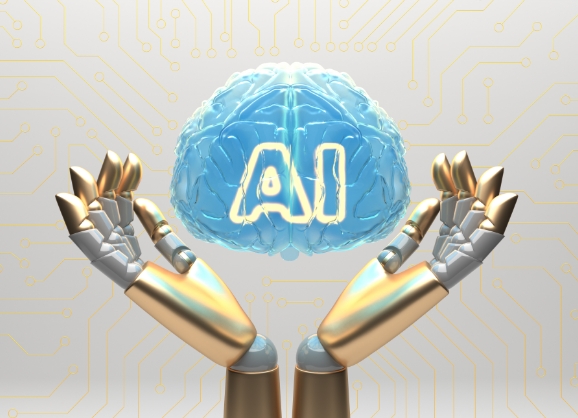In today's rapidly evolving technological landscape, the integration of artificial intelligence (AI) into various industries is redefining traditional processes. Even though AI is relatively new and fresh in the market, its hold on business is very evident and becoming progressively more prominent.
One field that has witnessed remarkable transformation is software development: the fusion of AI with software development has paved the way for unprecedented efficiency, accuracy, and innovation. This blog post will explore how AI reshapes the software development landscape and revolutionizes how we design, build, and maintain software.
1. Automated Code Generation: A Leap Forward in Efficiency
One of the most noticeable impacts of AI on software development is the emergence of automated code-generation tools. Leveraging machine learning algorithms, these tools can translate high-level specifications into actual code, drastically reducing the time and effort needed for manual coding. This advancement accelerates the development process and empowers developers to focus more on creative problem-solving than mundane code writing.
The AI fusion, along with traditional coding, can save developers a significant amount of time and effort. Some examples include Microsoft's Visual Studio Code IDE, which uses AI to provide personalized recommendations to developers. This can help developers to be more productive and to avoid errors.
Facebook's Prophet is a machine-learning library that can be used to predict future demand. This can help developers to plan their development schedules more effectively.
Amazon's CodeGuru is a service that uses AI to analyse code and identify potential bugs and security vulnerabilities. This can help developers to improve the quality of their code.
IBM's Watson Assistant is a virtual assistant that can help developers with tasks such as code review and testing. This can free up developers to focus on more creative and strategic work.
2. Bug Detection and Resolution: Elevating Software Quality
AI's prowess extends beyond code creation – it's also playing a crucial role in enhancing software quality. AI-powered tools can analyse vast historical bug data to predict potential vulnerabilities and bugs. Developers can then proactively address these issues before they impact the software's performance, resulting in more stable and reliable applications.
For example, Google's DeepMind has developed an AI system called AlphaFold that can predict the structure of proteins with unprecedented accuracy. This has the potential to revolutionize the field of drug discovery, as it can be used to identify new targets for drugs and to design more effective medications.
3. Intelligent Code Reviews: A Helping Hand for Developers
Traditional code reviews are essential but time-consuming processes. With AI-driven code review tools, developers can receive real-time feedback on code quality, adherence to best practices, and security vulnerabilities. This streamlines the review process and ensures the software meets the highest standards before deployment.
For example, CodeScene is an AI-powered code review tool that uses natural language processing to analyze code and identify potential problems. It can also generate code reviews tailored to the individual developer's needs.
4. Predictive Analysis: Paving the Way for Optimization
AI's ability to analyse large datasets is harnessed to predict potential bottlenecks, performance issues, and areas of the code that require optimization. This predictive analysis allows developers to make data-driven decisions, ensuring optimal performance and responsiveness in the final software product.
For example, Google's Optimize is an AI-powered tool that can help developers optimize their code for performance. It can identify areas of the code that are slowing down the application and suggest ways to improve performance.
5. Natural Language Processing: Bridging the Gap between Code & Communication
Understanding complex codebases can take time and effort for non-developers and some developers. AI-powered natural language processing (NLP) tools enable developers to interact with code using plain language queries. This bridge between human language and code facilitates collaboration among cross-functional teams and aids in knowledge transfer.
For example, Google's Code Search is an AI-powered tool that can help developers find the code they need by searching for natural language descriptions of the code.
6. Enhanced Testing Capabilities: Ensuring Robustness
AI-driven testing tools can automatically generate and execute test cases, providing comprehensive test coverage and identifying potential edge cases that might be overlooked. This helps ensure that the software is robust and reliable.
For example, Google's Testable is an AI-powered tool that can help developers to write better tests. It can identify areas of the code that are not covered by tests and suggest ways to improve test coverage.
Conclusion
The impact of AI on software development is profound and continues to evolve. AI is being used to automate tasks, improve quality, and make software development more efficient and effective. As AI solidifies itself and becomes more advanced, its aid in software development will become better and more proficient.




